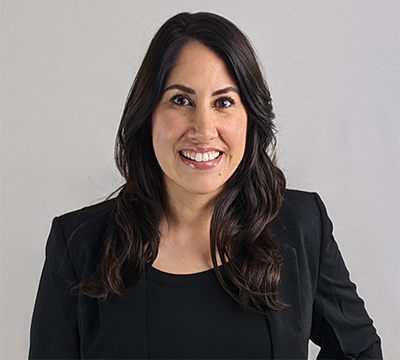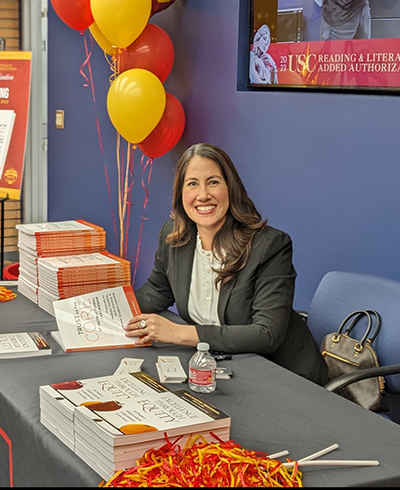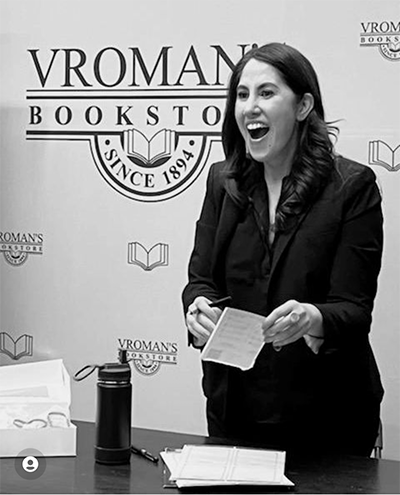The Core of Leadership is Trust: CEHD Alumna’s Book Shapes Schools Nationwide
October 31, 2025
By Kiersten Caputy

Delia Racines
When Delia E. Racines, MEd ’07, PhD ’14, reflects on her time at George Mason University’s College of Education and Human Development (CEHD), one word rises above the rest: trust. It’s the foundation she built as a graduate student, the guiding principle of her career, and the centerpiece of her first book, Trust as the Core of Instructional Leadership.
Now an administrator at the University of Southern California—and with experience as a principal, assistant principal, instructional coach, teacher, content designer, consultant, and adjunct professor—Racines’ career is as diverse as it is impactful. Her work has been recognized nationally, including receiving the Shirley Hord Award from Learning Forward. But at the core of all her roles is a strong belief that trust transforms leadership.
“Through every experience I’ve had with leaders, trust has been the core element that creates safe, empowering, and high-functioning environments,” she said. “That belief was shaped and strengthened during my time at CEHD.”

Racines’ academic journey at George Mason was defined by rigorous scholarship and transformative mentorship. Racines came to CEHD already passionate about educational leadership, but she says the program transformed her approach. “I didn’t just learn theory—I learned how to apply it in real, messy, and human situations,” she recalled. In Anastasia Samaras’ self-study course, she learned to lead with self-awareness and objectivity, even in moments of pressure. “You can’t build trust if you’re not willing to examine your own blind spots,” Racines said. From Susan Bon, she gained a deeper understanding of educational law, ethics, and civil rights—knowledge that she says shaped not just her dissertation, but her ability to advocate for students and staff with clarity and purpose.
These lessons proved invaluable as Racines transitioned into leadership roles in Los Angeles schools, where she saw firsthand how trust—or the absence of it—shaped the culture and success of entire communities. From a faculty’s willingness to innovate, to a community’s ability to rally around its students, “If people believe you have their best interest at heart, they will walk through fire with you,” she said. “Without that, all the technical skills in the world won’t matter.”
It was this realization that inspired her first book, Trust as the Core of Instructional Leadership, published by Solution Tree, which has found a home in school districts across the United States where it is used in teacher book studies and leadership trainings. One standout story comes from the Lennox School District in California, which adopted the book district-wide after hearing Racines speak at a conference. One of the protocols that resonated most with them was “listening for the request in someone’s complaint,” which encourages leaders to approach challenges with empathy and curiosity rather than defensiveness. “When leaders adopt that mindset, it opens the door to meaningful conversations that strengthen relationships,” Racines said.

Three years after its publication, Racines’ book now sits in the Library of Congress—a milestone that fills her with pride. “It still makes me smile to think someone opens my book and reads it,” she said. “My journey at CEHD truly made this book possible. Every experience, every lesson, and every connection was worth it.”
Trust as the Core of Instructional Leadership doesn’t just share leadership strategies; it reflects Racines’ belief that trust is an active practice, built daily through consistency, empathy, and clarity. She often tells leaders, “Go slow to go fast, assume positive intentions, employ effective listening, and listen for the request in the complaint.” These aren’t just catchy phrases—they are habits she cultivated at George Mason and in her own professional journey. “When you slow down and listen—really listen—you’re telling people they matter. And when people feel valued, they’re willing to take risks, collaborate, and grow.”
Beyond the book’s success, Racines has continued to influence educational leadership by coaching current and aspiring administrators, delivering keynote addresses, and serving as a trusted voice in professional learning communities. She attributes much of her effectiveness to the reflective habits and strengths-based leadership philosophy she developed at CEHD.
Her advice to current CEHD students and recent graduates is simple yet powerful: “Your voices and leadership are needed. Build trust, create strong relationships, and share your story—you never know whose life it might change.” From her graduate classrooms at George Mason to national stages, Delia E. Racines continues to model what it means to lead with trust. Her work reminds us that while strategies and systems matter, it is the human connection—rooted in trust—that ultimately transforms schools, communities, and lives.
Learn more about Racines’ book, Trust as the Core of Instructional Leadership.
